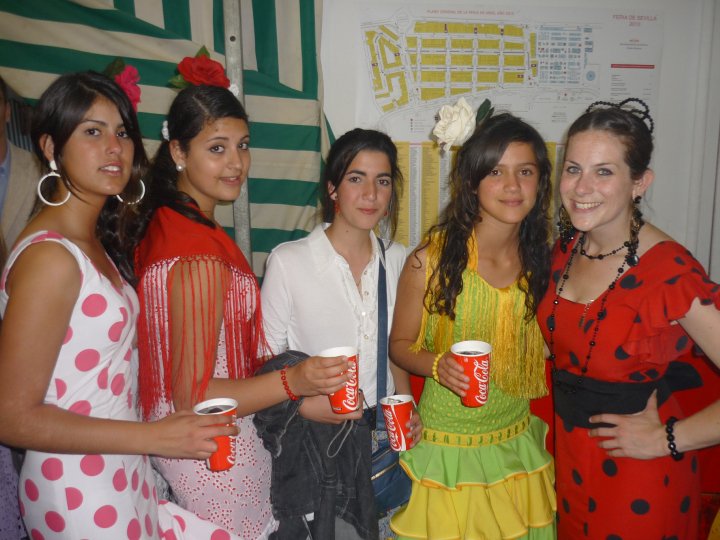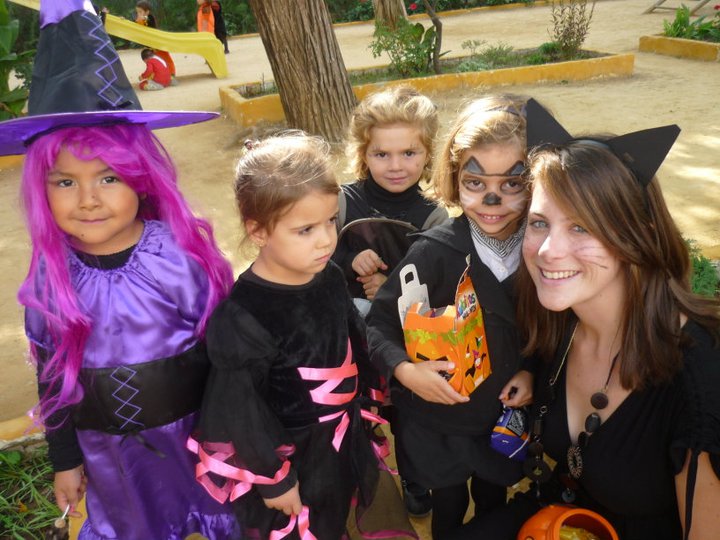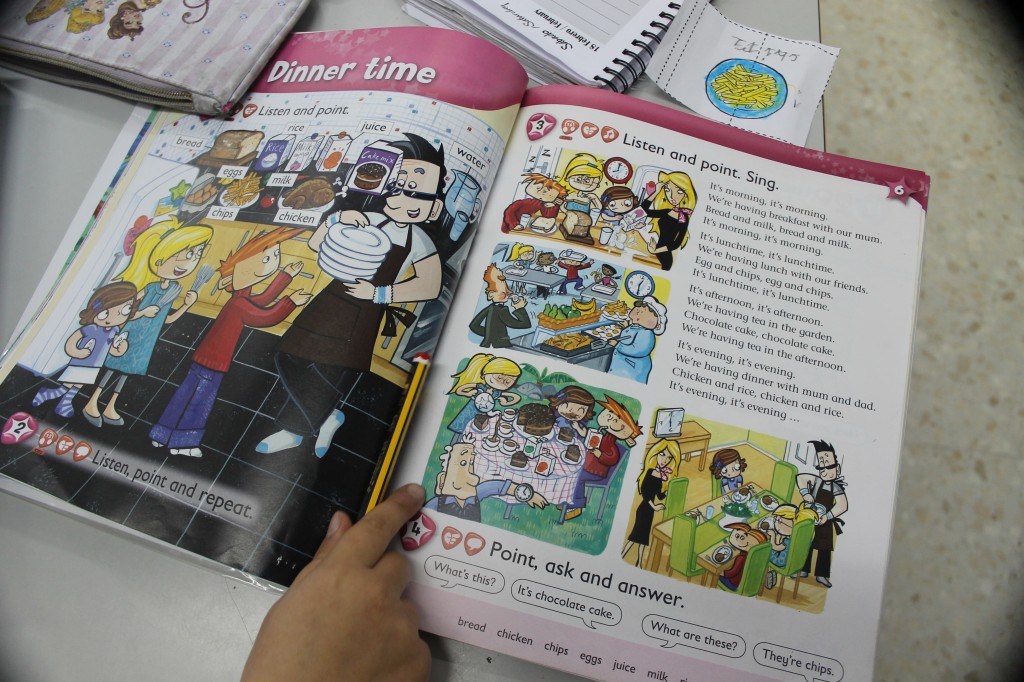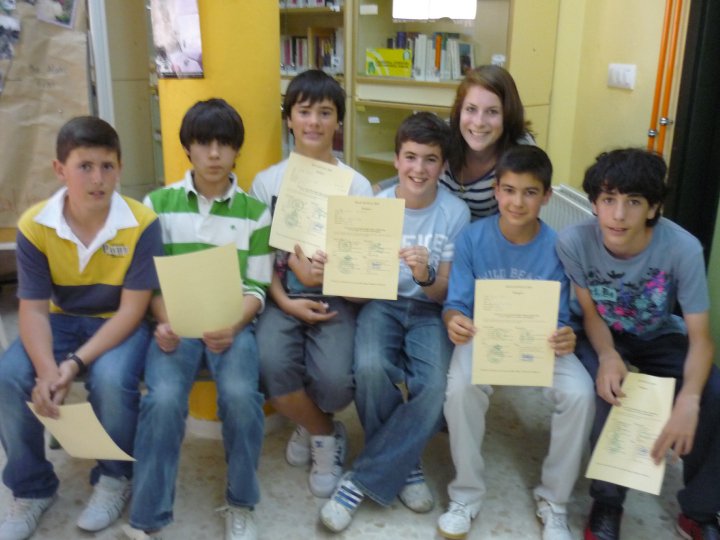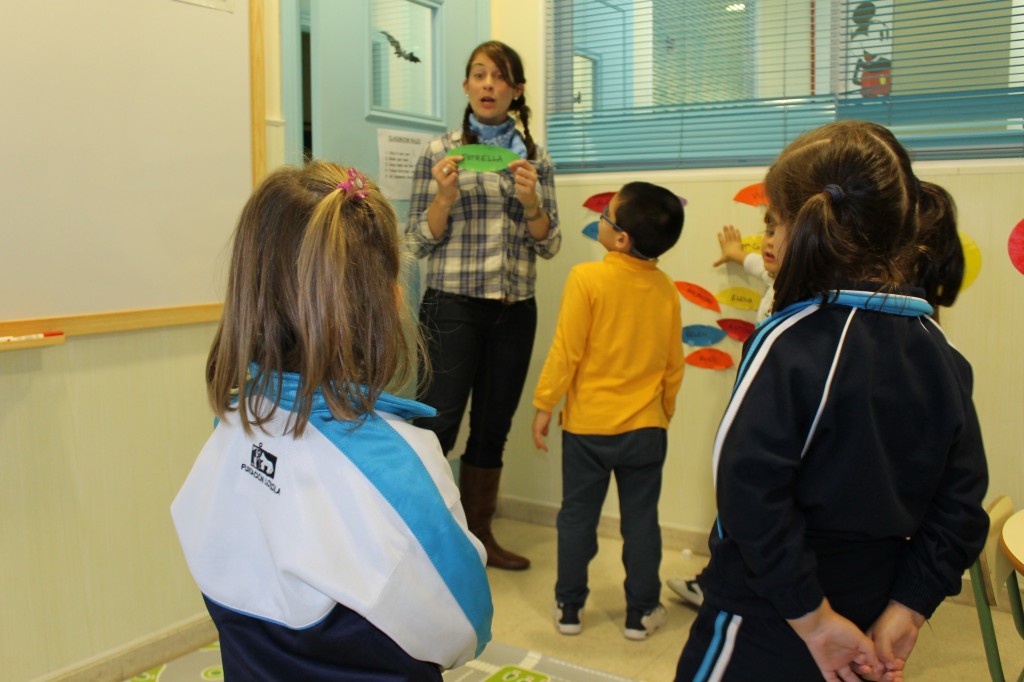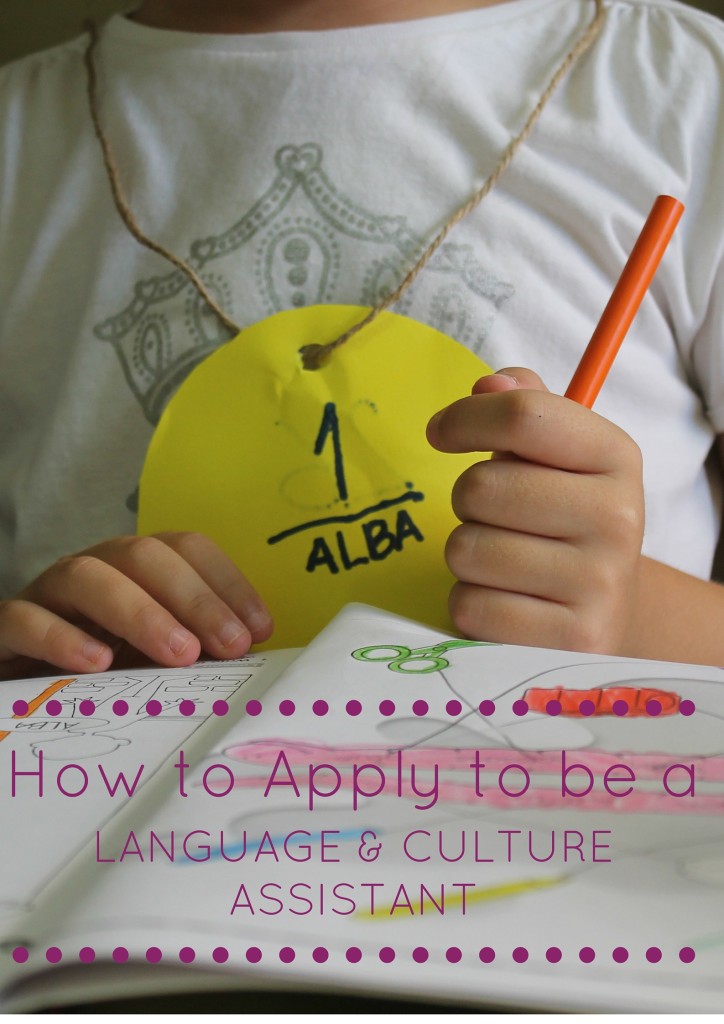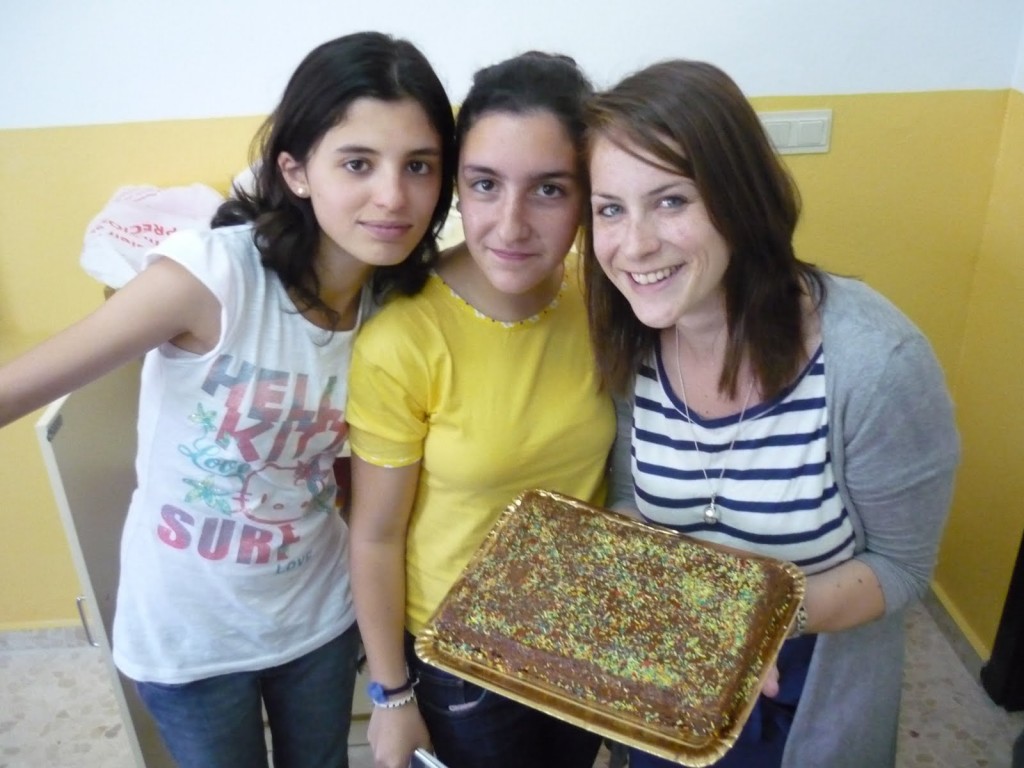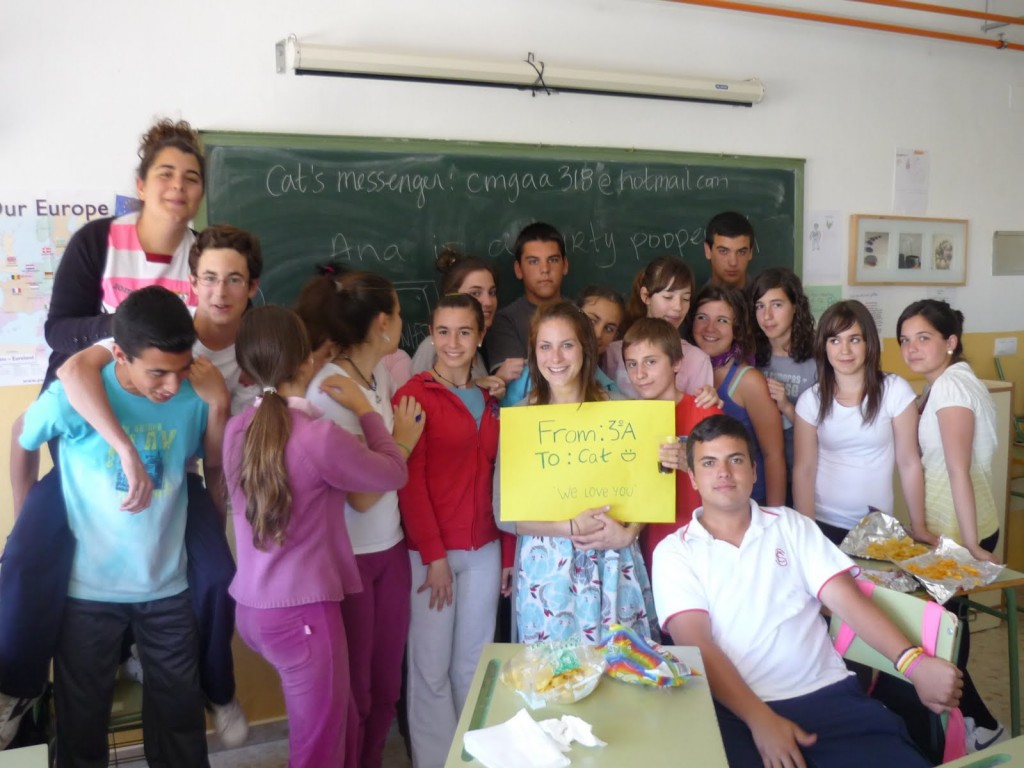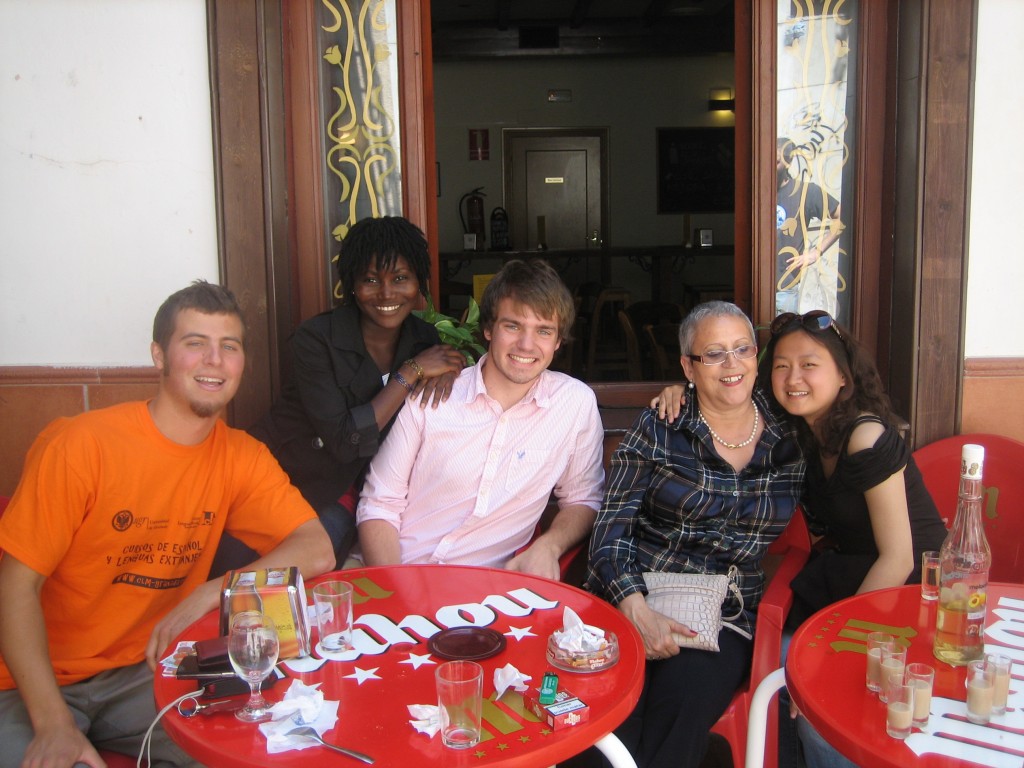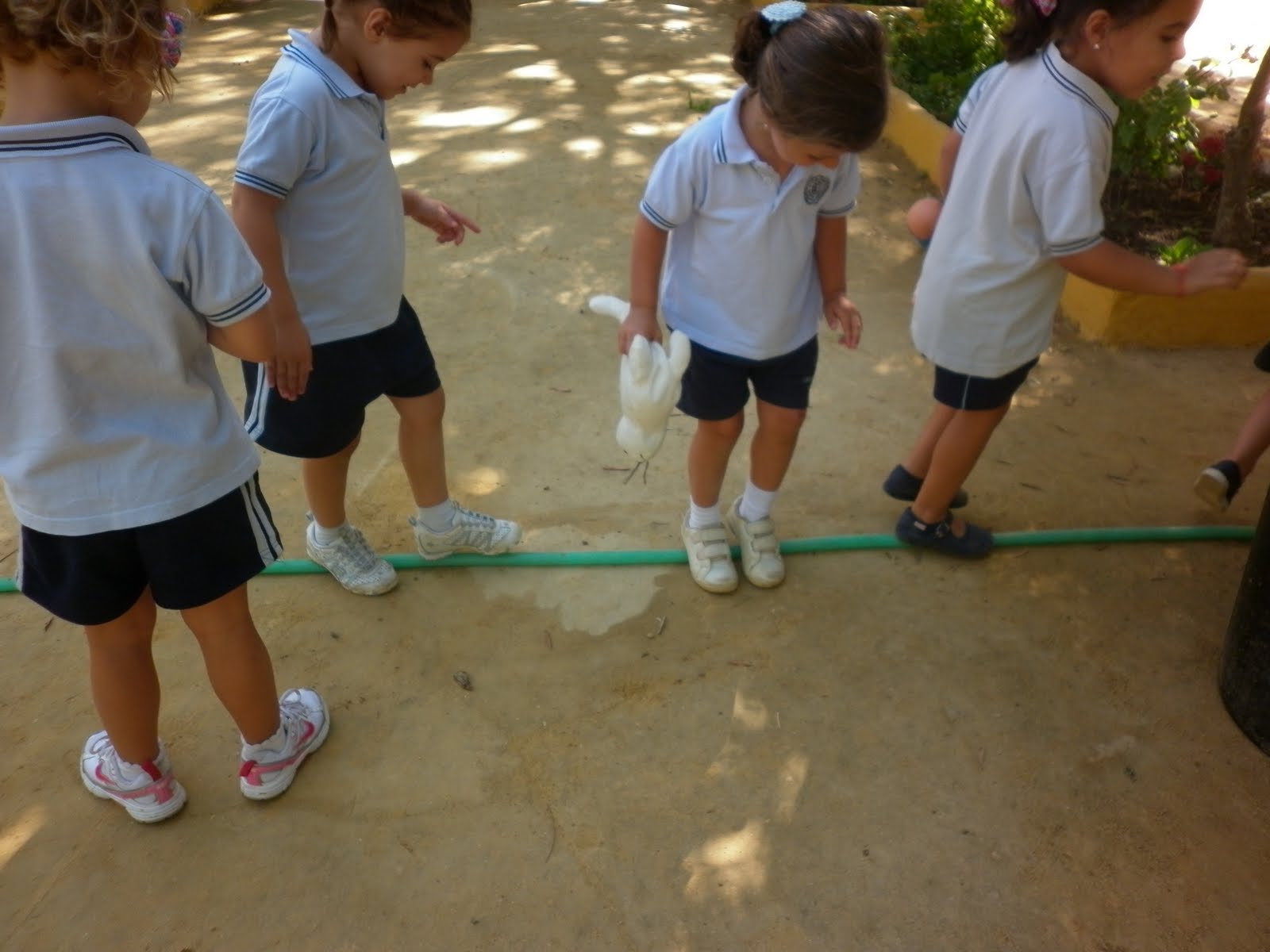About a year ago, I was invited to attend the “Helicheville” Bilingual Day in the school I worked at during my first three years in Spain. Emilio met me at the door with a, “SABORILLA! Te han dejado salir a la calle sin bozal?” Only someone like him would ask if I was allowed to be out without a muzzle. The day was a blur of hugs, of recounting what I’d been up to the last few years and asking if I could return to work in Olivares.
Ojalá – it was the most fun job I’ve ever had.
The North American Language and Culture Assistants program (NALCAP), or auxiliar program, has gotten a bad rep, and with some razón. Assistants say they’ve not been paid on time, or they’re left to their own devices in the classroom (or even underused), not having any idea about what their job really entails or the ability to prepare lessons and try to help the English language instruction.
I have to say that I got really lucky with my placement – wonderful coworkers who treated me as an equal, a three-day schedule with interested students and a school that always paid me on time. We even had music in the hallways during passing periods and kids rarely vandalized the school.
This utopia is not always the case, of course. I recognize that my experience was far different from that of many other friends, like Liz of Young Adventuress (who worked in Córdoba and La Rioja) or Lauren of Spanish Sabores (who spent two years in Andalucía). Their experiences are two of a myriad of them, and every experience differs. When I began teaching in Olivares, I had no idea it would lead to a career in EFL education.
And here’s the kicker: I actually LIKE teaching! It’s a profession I promised myself I’d never do, but I enjoy working with teens and the babies and find it to be a job that never gets boring. I initially planned to stay for a year and give teaching a try, and I’m still at it eight years and three jobs later.
So, with all of the rumors floating around about not getting paid on time, about indifferent coworkers and kids who could pasar tres kilos when it came to English. Believe me, I had a few issues with other teachers or students, but the day the envelope arrived telling me “Thanks for your time, but get the F out and let someone else have a turn,” my boss and I had a few tears as I realized I’d be jobless in a matter of weeks with no student visa.
Really, now could not be a better time to consider teaching in Spain, and those who have the government backing with visas and health insurance will come to Iberia with everything figured out but where to live and how to get their NIE (which is why I wrote an ebook about it!).
I have wonderful memories of IES Heliche, despite the long commutes, the desperation of putting up noisy teenagers and those moments of feeling really, crazily poor. But I firmly believe that you take whatever you put into the experience. Here’s my advice to incoming auxiliares:
Try and get to know the other teachers, whether or not they’re involved with the auxiliar program.
Yes, there will be teachers at your school who are indifferent, who don’t understand what exactly you do, or even tell you you’re better off not coming to class. After all, your fun lessons involving drawing hand turkeys on Thanksgiving cuts into their teaching time, too.
But there were will others who are curious or realize that you’re far from home, and even a simple hola can help tremendously when you’re missing ground beef actually made of beef and TV in English. My coworkers, for the most part, looked out for me and treated me with a lot of respect.
If you stand in the back of the classroom, you won’t enjoy yourself. Remember: you’re the fun teacher who doesn’t give homework or exams or demerits, so the battle is half won.
And then there’s the feeling of spending a year doing little else than explaining the difference between present perfect and past simple or enunciating words.
Believe me, I had the idea that I was going to make my student bilingual. Naive and overly optimistic, yes, but when I learned to let go of that idea and work to engage my students in classes, I got the sense of fulfillment I was looking for.
Be clear about your preferences and needs, but recognize that not everything is possible.
Eager to now my schedule my first year in Olivares, my boss came back with a four-day, twelve-hour schedule. I was crestfallen, at first, as my day off was Tuesday. While my friends were falling into bed after a night at the discos at 7am on Fridays, I was waking up to get to work.
During my second year, I was scheduled to work on a day in the middle of the week for only two classes. In fact, I’d spend more time on the bus than giving class.
After a few weeks of grinning and bearing it, I approached my boss. I didn’t threaten or get whiny (as is my style), but instead had already looked at possibilities in the schedule for swapping class hours, as well as talked to other teachers about the possibilities. I politely told my boss that this would maximize my time in the classroom and make my commute loads easier, and she agreed.
To be clear, there are things that suck that you probably can’t change – a long commute with weird and inconvenient bus or train times, working with an age group that could be difficult or the terrible money handling (which ensures you won’t be paid on time). You may have to work four days a week or split your time between two schools, or even 1000 students.
But if there is something that could be improved – be it a better classroom switch, more planning hours with teachers or even a suggestion that can streamline your work – tell your boss politely and give reasons why. Because there’s no catch-all description of your job, only you can put limits on what you do, or recommend ways to improve the program.
Relax. It’s likely not personal.
In my mission to try to please everyone (character flaw), I grew upset and angry when teachers flat-out told me I was useless to them, or barely grumbled a hello in the morning. But I’m the language assistant! You need me! I’m friendly and bake cookies on occasion! Don’t hate on me just because I’m a guiri!
Then someone gave me an emotional slap in the face (I’m sure it was Asun, and I’m thanking her for it) and told me to calm the hell down and not take it personally. Many teachers felt that they couldn’t use me effectively in the classroom because they were preparing for seniors’ exit exams, or because two days in English was simply too much. Some teachers are extremely old school, so respect it and move on.
Once I got over myself, I enjoyed my classes and team teaching non-lingusitics courses.
Remember that it’s a job that you’re doing part-time, and you’re getting paid far more than you should be getting paid.
Just to give you an idea – a teacher at many language schools in Seville work 20-24 hours a week and earn between 800€ and 1,200€ a month after taxes. Twelve hours for 700€? Casi regalao! Enjoy it, and all of the free time you have after you’re done working.
Once you have a full-time job, you’ll miss finishing work at noon and getting to take a siesta every day. Just saying.
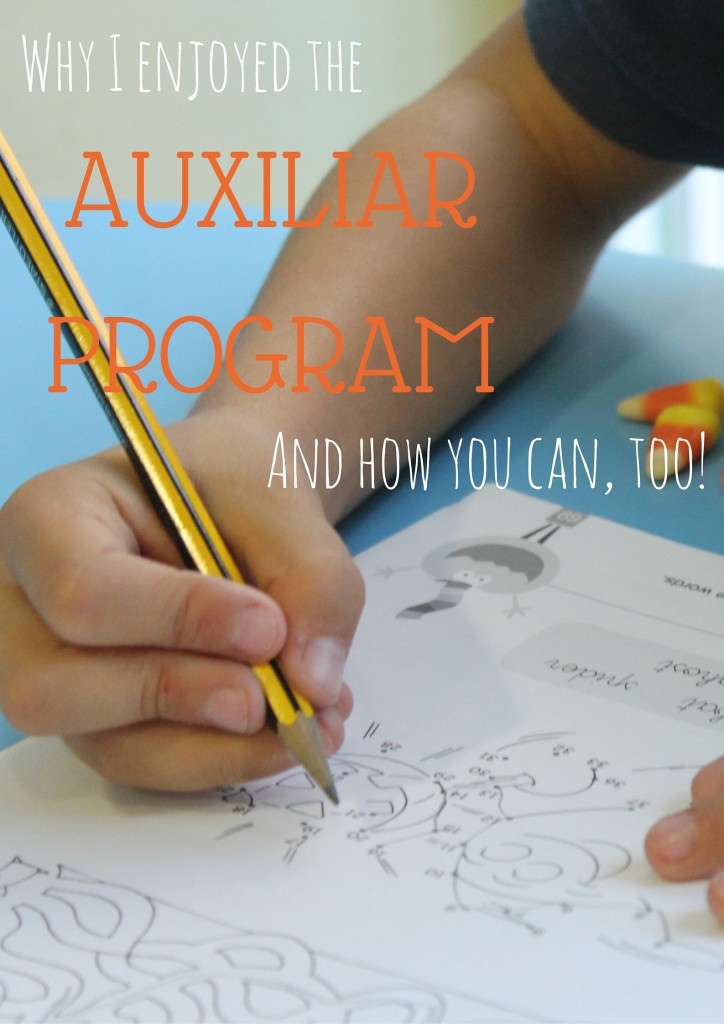
Interested in more posts about my experience working at a rural high school in Andalucía? Check out these posts: How to Apply to the Auxiliar Program // Alternatives to the Auxiliar Program // Saying Goodbye to IES Heliche
If you are getting ready for the program and have questions or doubts leave me a message in the comments – I’d love to hear from you!
